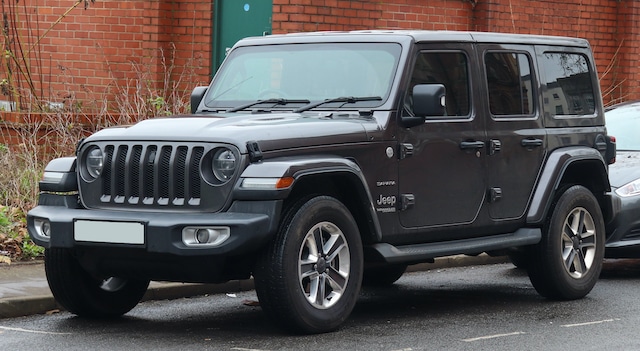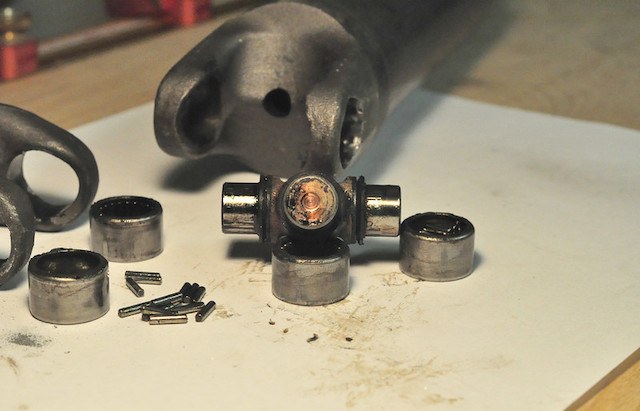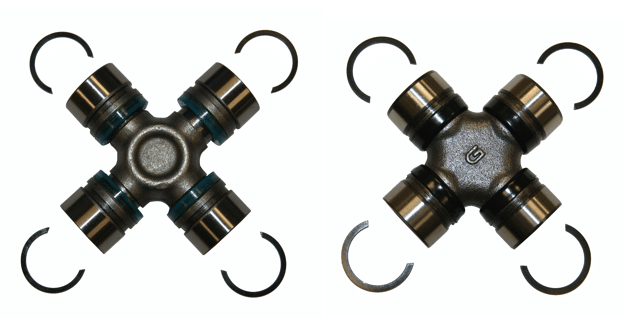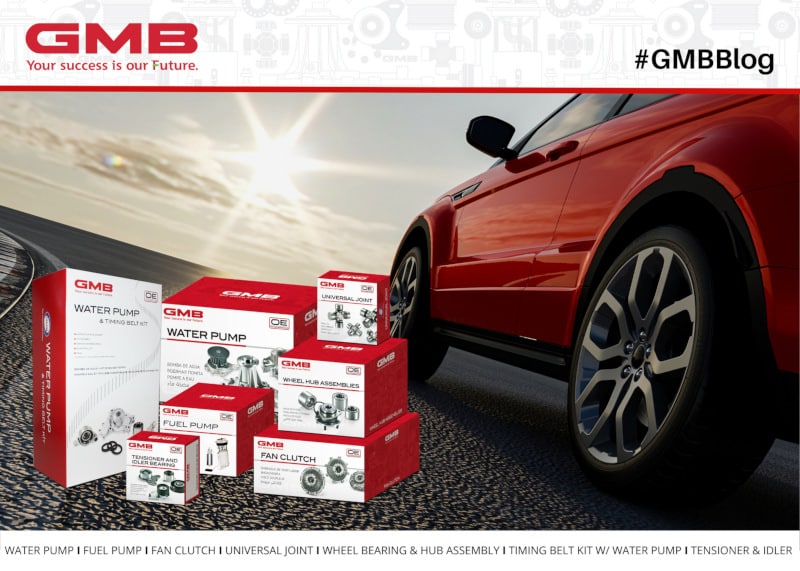Common U-Joint Problems For The Jeep Wrangler
According to this blog post, u-joints should last the lifetime of the vehicle. Yet, that doesn’t always happen. The Jeep Wrangler can be prone to u-joint issues. If your shop gets Jeep Wranglers sometimes, it’s a good idea for your techs to know the most common u-joint issues with this particular vehicle.

One key thing to know is that Wranglers from 2007 upwards do not use a conventional u-joint in their driveshafts. JK and JL Wranglers use an Rzeppa joint, which is a type of universal joint. They use these to allow the driveshaft to flex more without vibration. Jeep Wrangler TJ’s, made from ’97-’05 use standard u-joints. But the rear driveshaft has a double cardan design, so there are two u-joints at the front of the driveshaft.
Most Wranglers made over the last 20 years use conventional u-joints in the front axle-shafts. An exception is the 2018 and up Jeep Wrangler Sahara, which used CV joints in the front axles.
We’ll discuss the most common u-joint and Rzeppa joint issues for Jeep Wranglers in this guide. For the sake of simplicity, we’ll call them all u-joints. We’ll particularly go over the following points:
- The biggest telltale signs of u-joint failure in Jeep Wranglers
- Diagnostic and repair tips
- Recommended replacement u-joints for Jeep Wranglers
- The most common reasons u-joints fail on Jeep Wranglers
Jeep Wrangler U-Joint Failure Symptoms

- Unusual noises: squeaking (at low speeds), clunking/ringing (when you shift the transmission from drive to reverse), banging
- Transmission or differential fluid leaks
- Vibration felt throughout the Jeep when it’s in motion
- U-joints in the front axle shafts will make clunking sounds, and cause vibrations while turning at low speeds.
U-Joint Diagnosis And Repair Tips For Jeep JK Wranglers
If a customer brings in a Jeep Wrangler with a bad u-joint symptoms, here are some diagnosis and repair tips that may help your techs:
- It’s important to check all the u-joints on the Wrangler. If one u-joint is bad, the other u-joint(s) may be bad, too. As Jeep Wranglers have u-joints in their front axle shafts, and Rzeppa joints in their driveshafts, there are more places to look.
- It’s common for another issue within the vehicle to cause u-joint failure. So it’s worth taking the time to pinpoint the cause of u-joint failure. Doing this will reduce comebacks. It’s best if your techs perform the diagnostics themselves, so they can also implement the repair.
- Off-road use and suspension lifts will cause u-joints and Rzeppa joints to fail sooner than expected. So low mileage should not rule out u-joint problems.
Recommended Replacement U-Joints For Jeep JK Wranglers

One of the best ways to build customer loyalty is to use high quality replacement parts. GMB is a leading brand for replacement u-joints. Here’s a list of the recommended GMB front axle u-joints for Jeep JK Wranglers:
- 2007-2018 Jeep Wrangler: GMB u-joint #210-0057
- 1992-2011 Jeep Wrangler: GMB u-joint #210-0297
The Most Common Reasons Jeep Wranglers Have U-Joint Issues
The most common reasons Jeep JK Wranglers have u-joint issues are:
- Infrequent maintenance
- Steep operating angles due to lifts
- Wear and tear
- High torque loads from off-roading
MORE CONTENT
Stay current!
Sign up here to get the latest news
and updates on all things GMB.
Sign Up To Receive GMB News & Updates!

